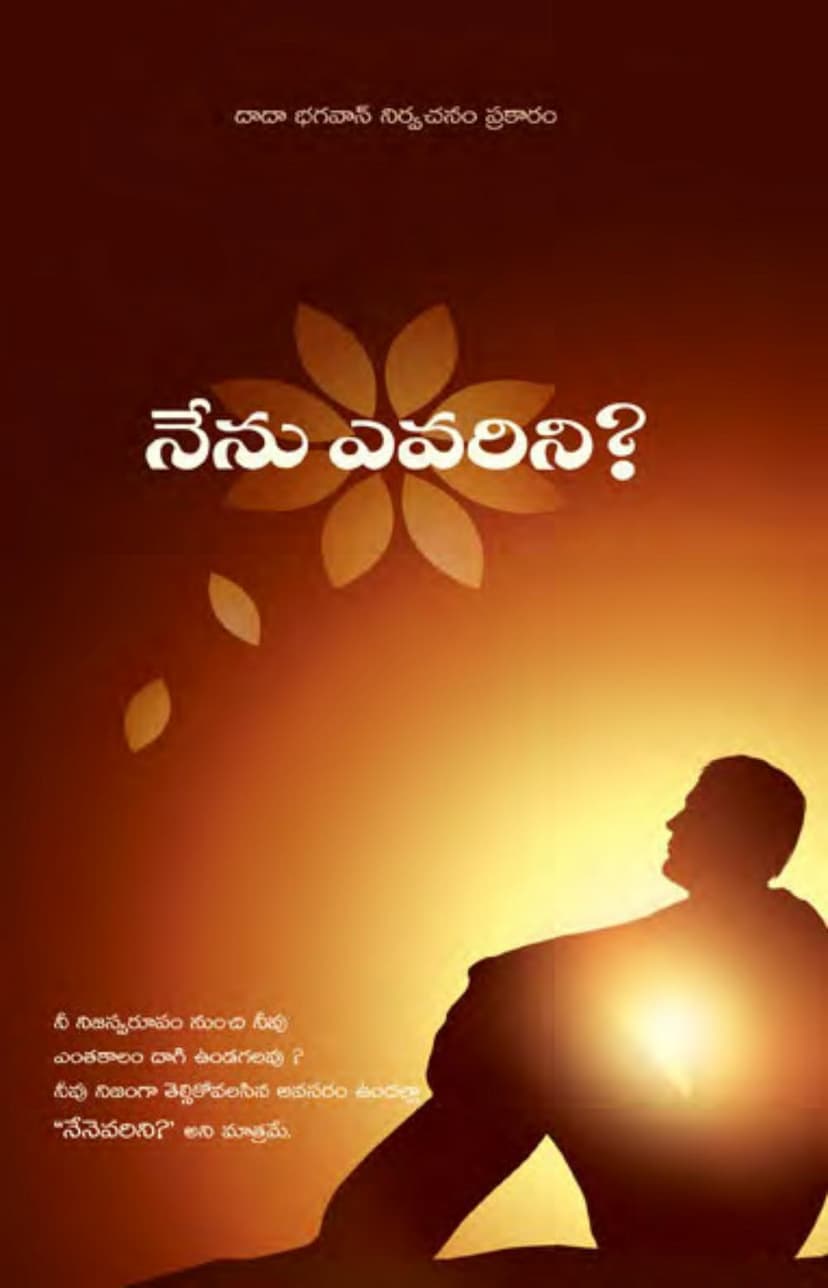Who Am I
Added to library: September 2, 2025
Loading image...

Summary
This document is the Telugu translation of the book "Who Am I?" by Dada Bhagwan, published by Dada Bhagwan Aradhana Trust. The book is a discourse on self-inquiry and spiritual liberation, guided by the teachings of Dada Bhagwan.
Key Themes and Concepts:
- The Central Question: "Who Am I?" The book emphasizes that the most crucial question for human life is understanding one's true self – "Who am I?" This question, when genuinely sought, is the key to liberation from the cycle of birth and death.
- Dada Bhagwan's Enlightenment: The text recounts the spiritual awakening of Ambalal M. Patel (later known as Dada Bhagwan) in 1958, where he experienced self-realization and became a living instrument for humanity's liberation. He identified the divine presence within him as "Dada Bhagwan."
- Akram Vignan (The Science of the Self): Dada Bhagwan's teachings are presented as "Akram Vignan," a direct, shortcut, and effortless path to self-realization, unlike the traditional "Kram Marg" (step-by-step spiritual path). This Akram path offers self-knowledge in just two hours through a process called "Gnan Vidhi."
- The Nature of the Self vs. the Non-Self: A significant portion of the book is dedicated to distinguishing between the "Self" (the pure Soul, the "I") and the "non-Self" (the body, mind, ego, name, relationships, possessions – referred to as "mine"). The core spiritual practice involves a clear separation of the Self from the non-Self.
- "I am the Self," Not "I am Chandulal": The book uses the example of "Chandulal" (a hypothetical name) to illustrate how we wrongly identify with our name, body, and roles, leading to a "wrong belief" that binds us in ignorance and suffering. The true Self, the Soul, is distinct from these temporary identities.
- Wrong Beliefs and Right Beliefs: The text explains that most of our suffering stems from wrong beliefs ("I am this body," "I am the doer," "I am a husband/wife," etc.). To attain liberation, these wrong beliefs must be replaced by the "right belief" – the awareness of being the pure Soul.
- The Role of the Enlightened One (Gnan Purush): The book stresses that self-realization cannot be attained through personal effort alone. It requires the grace and guidance of a living Enlightened Being (a Gnani Purush) who can impart self-knowledge through a special ritual called "Gnan Vidhi." This process is described as a "lift" to spiritual freedom, bypassing the arduous steps of traditional paths.
- The Nature of Karma and Causality: The teachings explain that nothing happens without a cause, and the world operates through "scientific circumstantial evidence." While we experience events, the ultimate "doer" is not an individual but the cosmic law. The concept of "I am the doer" creates new karma and binds the Soul.
- The Importance of the Five Commands (Agyas): After receiving self-knowledge, the disciple is given five spiritual commands to follow. These commands are designed to prevent the charging of new karma and help in experiencing the Self while living in the world. They are presented as essential for maintaining spiritual awareness and progress.
- Moksha (Liberation): Moksha is defined as the state of complete freedom, eternal bliss, and self-suffering. It is not a destination to be reached after death but an experience that can be attained in this lifetime (Jivanmukti). The first stage of Moksha is experiencing equanimity amidst worldly pleasures and pains, while the second stage is liberation from the cycle of birth and death.
- Distinction Between a Saint (Sant Purush) and an Enlightened Being (Gnani Purush): Saints guide people toward good deeds and away from bad deeds, while an Enlightened Being liberates one from the very root of karma (the belief of being the doer).
- The Continuity of the Akram Path: The book assures that the lineage of Enlightened Beings will continue, ensuring that the Akram path remains accessible to seekers for the benefit of humanity.
In essence, "Who Am I?" by Dada Bhagwan is a guide to discovering one's true, eternal Self (the Soul) through direct experience, facilitated by an Enlightened Being and the Akram Vignan process. It aims to free individuals from suffering caused by ignorance and false identification by revealing the true nature of the Self.